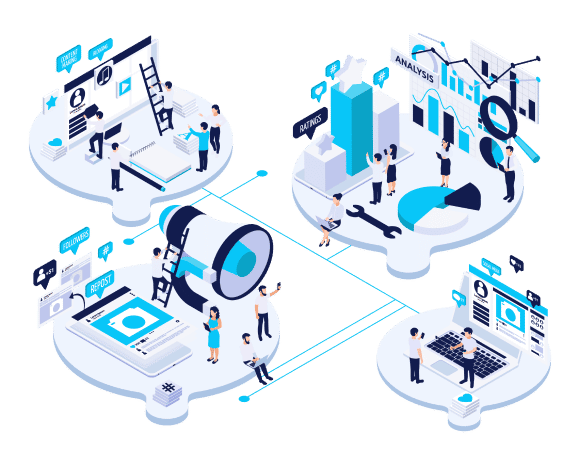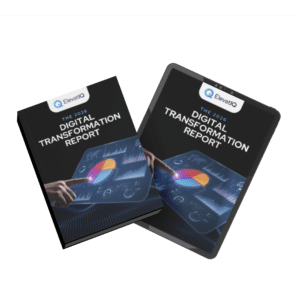Helping With Post Merger Integration
Through the structured approach of identifying the process differences in both business models, building the to-state of the newCo, as well as aligning stakeholders

Problems Companies Face
When They Need Help With Post-Merger Integration?
Are your system not keeping up post-merger? Able to consolidate financially but have significant operational issues with allocation and supply chain? ElevatIQ’s post-merger integration services are designed to help companies when they struggle with these challenges.
Significant Operational Challenges and Disruptions Post Merger
Busy chasing root causes of software issues post-merger? Financial consolidation works, but operations teams struggling to run the business? Companies seek help from ElevatIQ when they might have significant operational challenges and disruptions post-merger.
Data Siloes Bottleneck to Growth
Do you have data siloes and can’t capitalize on the synergies between different systems, processes, and departments? Data siloes not providing quality insights? Companies seek help from ElevatIQ when data siloes might be bottlenecks to their growth.
NewCo Business Model Operationally Different from OldCo
Newly acquired business model is operationally different from OldCo? eCommerce focus for newCo while the ERP’s design is for a legacy business model? Companies seek help from ElevatIQ when they need help in restructuring master data and processes.
No Clear Enterprise Architecture and IT Strategy for the NewCo
Architecture and IT strategy feel all over the place? Substantial issues with data quality and master data? Connection points not working between systems? Companies seek help from ElevatIQ when they might not have a clear enterprise architecture and IT strategy for the NewCo.
System Landscape Grew Significantly Post Merger
Have too many systems in the mix with integration issues? SG&A growing faster than revenue post-merger? Companies seek help from ElevatIQ when the system landscape grows significantly post-merger.
Want to learn more about why independent consultants have a higher success rate with post merger integration?
Our Case Studies for
Post Merger Integration

Mergers and Acquisitions ERP Integration Failure Rescue
Download the mergers and acquisitions ERP integration failure Case Study and learn how Pride Sports struggled with Supply Chain and inventory allocation issues, as well as operational disruptions due to poorly planned M&A integration and ERP transformation project.

ECommerce Supply Chain Transformation With ERP Selection
Download the eCommerce Supply Chain transformation case study and learn how LockNLube transformed its inventory and supply chain challenges by consolidating over 20 systems. As well as by creating business, process, information, and system architecture as they prepare for the next phase of their growth.

Omnichannel eCommerce Customer Experience Transformation
Download the omnichannel eCommerce customer experience case study and learn how fashion retailer AKIRA built a digital roadmap and managed stakeholder expectations to transform its processes and systems to explore newer business models such as buy-online-pickup-in-store and curbside pickup.
Our Methodology
for Post Merger Integration
Our methodology starts with the assessment of your current business processes. This step is typically followed by a deep discovery and analysis phase to build as-is and to-be enterprise architecture and process models, followed by the implementation and an optimization plan.

1 Assessment
Through primary and secondary research, this assessment digs into each of your datasets, transactions, and processes to build as-is and to-be process models and architecture with several different options and pros and cons of each approach.
3Solution Analysis
This step digs into the potential solutions, whether they might be process-related or system, and evaluate their pros and cons. This step also identifies a solution that is most financially realistic and agreed upon by all parties.
2Adoption and Optimization
Post implementation, this step measures the desired KPIs and process compliance and adoption in the post-implementation phase. Any deviations? The appropriate steps are taken until the processes are able to hit the KPIs desired.
2Business Process Analysis
This is a deep dive into the as-is and to-be process models, along with exploring the financial and technical feasibility of the chosen option. This phase also takes a deep dive with each stakeholder until they all are aligned with the as-is and to-be state of the desired option.
4Implementation
Depending upon the complexity of the integration, whether the change is simply a process or data change. A minor integration. Or a full-blown digital transformation initiative, the length of this phase could vary.
Ready to learn how we can help With Post-Merger Integration?
Our Other
Post-Merger Integration Services
ElevatIQ business and technology advisory services include business process re-engineering, business process improvement, business process documentation, change, and project management, post-merger integration, and audit support.
Business Process Improvement
This service helps in hitting a specific KPI, such as the amount of waste, inventory turns, or demand forecast accuracy. Through the root cause analysis of current data and processes, an as-is and to-be plan is built. Using an MVP approach, an initial pilot is created to understand the impact of the change, followed by continuous monitoring and improvement.
Business Process Documentation
This process helps reverse engineering the processes deeply buried in business systems. This exercise is helpful for companies that are building operational capacity plans for the next phase of their growth. The process is then followed by the to-be process models, comparing the changes and investment that would be required to grow to the next inflection point.
Business Process Re-engineering
Our business process re-engineering services are especially helpful for companies that might be outgrowing non-standard, heavily customized, or legacy ERP systems. Our process of re-engineering services starts with an assessment, with a thorough analysis of current data and systems, followed by a site visit and interviews with stakeholders. Once the changes are identified and agreed upon, as-is and to-be models are built, along with the training and governance materials that teams can use.


